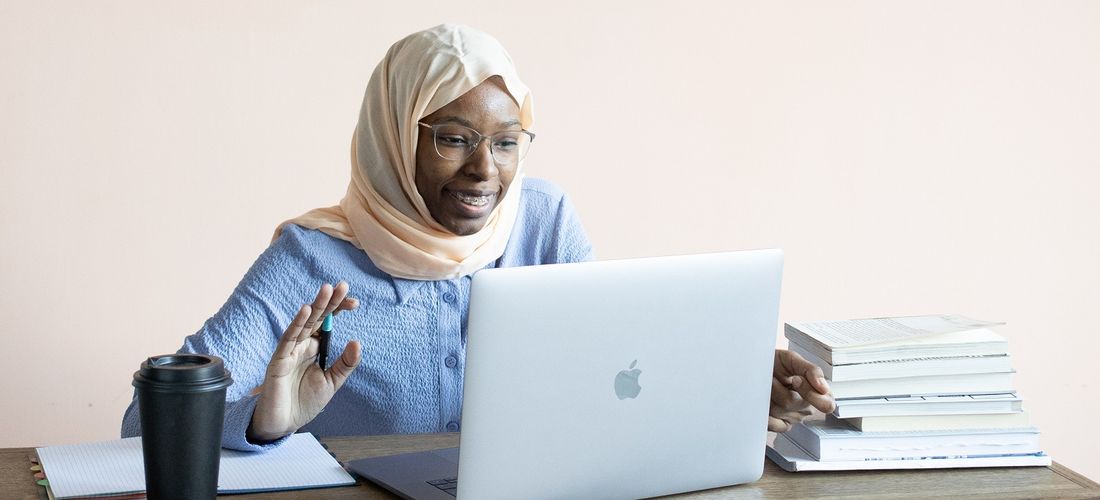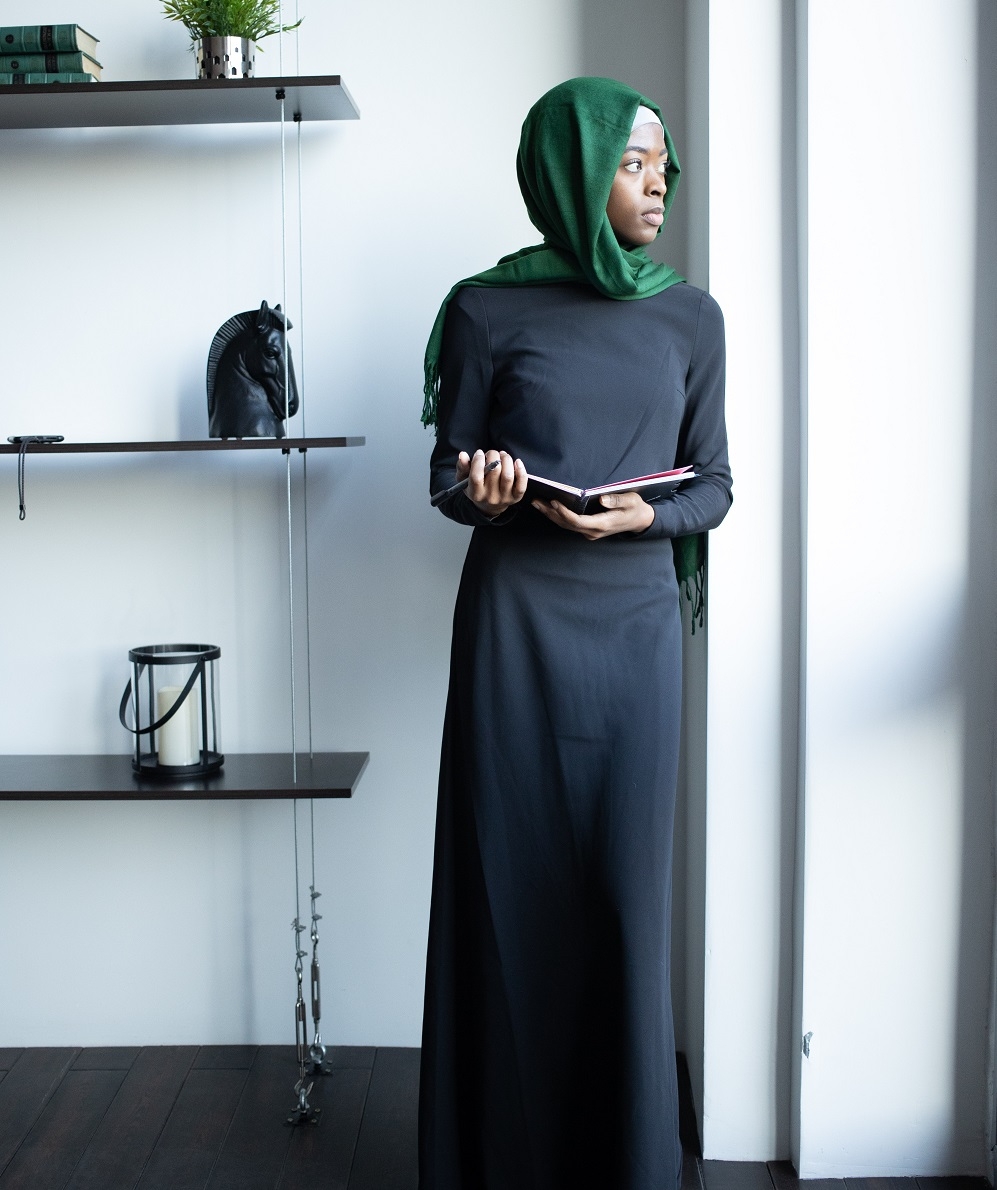The Islamic Case for Self Love & How it Goes Beyond Self Care To Prioritize Well-Being
Lifestyle
|
Jun 7, 2021
|
7 MIN READ

Image source: Monstera from Pexels
I’ve been pondering about killing my baby for weeks. It would be hard to get rid of it, after years of nurturing and struggling to see it go from crawling to walking, but dealing with it increasingly caused too much physical and emotional strain. Now, before anyone gets too flustered, I’m not referring to any of my human children but rather NbA Muslims, an online cultural platform I launched in 2015.
NbA Muslims highlights the creativity of African American, Latinx and Native American Muslims and sheds a lense on issues impacting Muslims at the intersections of faith, race and gender through articles, interviews, guest posts, collaborations and more. I accomplished a lot through NbA Muslims over the years, resulting in the increased demands on me. As I expanded my work into cultural scholarship, social justice and contributions to other online platforms, the pressure started to get to me.
I grappled with the physical detrimental effects of stress on my body for years. It only continued to get worse. The migraines wouldn’t go away, and neither would insomnia and heartburn. My blood pressure and blood sugar kept rising, and my muscles got weaker under the constant strain of tension. All of that and the thickening of my waist resulted in a diagnosis of metabolic syndrome before my 50th birthday.
During the whole time I was tearing down my body, I told myself that I was doing good work, God’s work. It was for the pleasure of Allah (S), so all of the anxiety and pain was worth it. Scholars and leaders who intellectually feed Muslims steadily promote self-sacrifice. We receive constant messaging that we should give of our wealth and selves in the service of our fellow Muslims. This is not wrong. After all, the Prophet Muhammad (saw) said:
“The most beloved people to Allah (S) are those who are most beneficial to people. The most beloved deed to Allah is to make a Muslim happy, or to remove one of his troubles, or to forgive his debt, or to feed his hunger.” [Al-Muʻjam Al-Awsat 6026]
Our interactions with our fellow Muslims remain a foundational part of seeking Allah’s (S) favor and garnering barakat (blessings). Therefore, encouragement from Muslim leadership in this vein can benefit. However, Islam is a deen (way of life) that promotes balance and moderation (wasatiyyah) in everything.
Islamic teachings encourage us to avoid extremes in all aspects of our lives. While it is great to engage in philanthropy, social justice and community service, we must not fail to overlook our own needs. That was something I did for years, to the detriment of my health, spiritual and emotional well-being.

I dug in so hard with doing the good work that I disguised and dismissed my physiological breakdown. It was easier when I was young and had the tenacity and energy of youth to push me forward, but as I continued through the years, the aches and emotional torment nagged me. I was reminded of the hadith, where Prophet Muhammad (saw) said:
“Your body has a right over you, your eyes have a right over you and your wife has a right over you." [Sahih al-Bukhari 5199]
I had to learn to take stock of my abilities and needs or die from neglecting myself while trying to do for others, the ummah, our cultures.
The past six months of medical emergencies, illnesses and mourning forced me to think of ways to assess my boundaries and practice self love. It made me focus on how I can regain balance between what I want to give to my work, to our communities and my family while prioritizing my own well-being.
What is Self Love?
Unlike self-care, which focuses on nurturing the body and soul (both good things) and has received a lot of attention of late, self-love involves the process of appreciating oneself and one’s own needs and to avoid sacrificing one’s physical wellbeing for the sake of others. In comparison, self-care involves taking action to preserve one’s physical health (particularly during times of stress), while self-love includes an inner dialogue that inspires a person to center themselves and set boundaries that will reduce the stressors and strains requiring self-care.
There is some overlap between the two, and both self-care and self-love have essential elements. I had practiced self-care for years: I would set aside time to do something relaxing, but only after the world had me balancing on the brink of an anxiety breakdown. I would send my children off with their father so I could have the house to myself, but only after I was overwhelmed and blown up. I left my job with a major nonprofit, but only after I was burned out and limping through Penn Station, struggling to get home after training in a workshop.
It was not until I lay in my recovery bed – after dealing with multiple illnesses, COVID and health setbacks – with mounds of responsibilities weighing down my shoulders, that it wasn’t enough. I needed more. I needed to have a proactive approach to safeguarding my physical, mental and emotional health instead of rectifying them after the damage was done. Integrating self-love helped.
How Do I Love Myself?

Choosing yourself is a foundational part of self-love. Now, that may seem antithetical to Islamic teachings about self-sacrifice, but it really isn’t. The Prophet (S) teaches us to take regular self-assessment and remains an example of balance. He said:
Consult your heart. Righteousness is that about which the soul feels tranquil and the heart feels tranquil, and sin is what creates restlessness in the soul and moves to and fro in the breast, even though people give you their opinion (in your favour) and continue to do so. [Sunan al-Dārimī 2575]
The above section of a hadith emphasizes consulting the heart and to engage in self-assessment. Practicing self love is about choosing yourself, but it also includes an inner dialogue or consultation, where you:
1. Talk to and about yourself with love.
2. Give yourself a break from self-judgement.
3. Trust yourself.
4. Be true and nice to yourself.
5. Forgive yourself when you aren’t being true or nice to yourself [source: Brain and Behavior Foundation].
Generating a positive internal dialogue allows one to value who they are and appreciate what you think and feel. A big thing for me was to accept that I couldn’t do everything for everyone. I couldn’t be everyone’s champion. Once I came to terms with my limitations and conceded to them to protect my body and emotional health, I started to value them and use them as parameters to measure my involvement in any endeavor.
I can’t do everything I want to do. It’s who I am, and that’s fine.
Setting Healthy Boundaries
Although I always appreciated the need for boundaries, I spent most of my life without them. I was the quintessential “yes girl” when it came to projects and initiatives. At one point, I wrote for NbA Muslims and multiple online publications, taught history at a New York college, trained anti-racism workshops all over the country, homeschooled and volunteered as a beginners’ Arabic teacher. Yes, it was that wild. Then I included novel writing, editing, mentoring authors and editing anthologies.
I was a mess, crashing and burning all over the place. Every time I jettisoned one project, I was saying yes to another. It wasn’t until I sat back and engaged in self-love that I realized my “progressing the ummah” resulted in marital strife, anxiety and kids clamoring for their mother’s time. I had to set up boundaries or risk losing everything.
In the article “10 Ways to Build and Preserve Better Boundaries,” Chantelle Pattemore suggests 10 steps to setting up healthy boundaries.
1. Enjoy some self-reflection – understand why each boundary is important.
2. Start small – build up slowly.
3. Set boundaries early – let everyone in your relationships know your boundaries and where they stand as soon as possible.
4. Be consistent – don’t let boundaries slide, it may lead to confusion and new demands.
5. Create a framework – have general boundaries that apply to every situation.
6. Feel free to add extras – add to existing boundaries in places like work.
7. Be aware of social media – stay wary of oversharing, don’t engage in social media that distresses you, and set boundaries about the best ways and times to reach you.
8. Be your biggest champion – use positive self-love internal dialogue to create a narrative of your value and advocate for yourself
9. Gain some perspective – don’t go too far or overthink boundaries; go with your gut instinct and let go if necessary.
10. Recognize the boundaries of others – appreciate other people’s boundaries and respect them.
11. Don’t worry about staying relevant in the eyes of others – you don’t have to be contributing to everything, even if you connect with it. The work is meant to be shared. You simply cannot and should not try and do “it all.”
By engaging in self love and integrating it into Islamic teachings about self reflection and caring for one’s self through moderation and care, I have a developing positive inner dialogue that helps me recognize my self worth and establish boundaries so that I can protect and honor my body, mind and soul – all gifts from Allah (S).
For those wondering if I killed my baby. I have not. I just put it to sleep. NbA Muslims will be on hiatus until I make a final decision. Although I love it, and the way it benefits Muslim culture, I have to love myself more.
How do you practice self-love? Have you given up some things for the sake of your wellbeing? Share with us in the comments below!
Subscribe to be the first to know about new product releases, styling ideas and more.
What products are you interested in?

